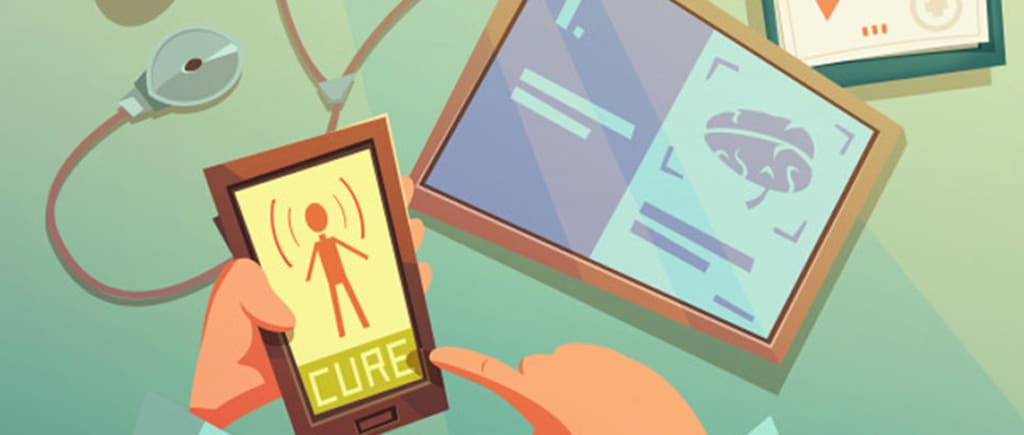ADHD Assessment Tools
Among them, two important categories are behaviour rating scales (rating scales) and task-oriented testing methods.

There are several types of assessment tools used in ADHD assessment.
A rating scale is a collection of statements about specific behaviours that are negatively related to ADHD such as restlessness, distractibility, lack of focus, and impulsiveness. Most frequently, the items are rated on a scale from zero to four. The higher the rating, the more severe the symptoms are. A task-oriented test is a structured, logical testing method and usually includes items such as scratch cards, problem-solving, addition or subtraction, and colour discrimination.
Both of these ADHD assessment tools can provide quantitative results and descriptive information about behaviour. When rating scales are used, the observations of the child's behaviour may be compared to those of a peer group or to his/her own self-image. However, these tools cannot provide a definitive diagnosis of ADHD. As a result, a diagnosis of ADHD must be made by observing the child in action at home.
Here are some of the more common testing methods used in diagnosing ADHD
Continuous Performance Task (CPT)
The CPT is an excellent ADHD assessment tool for parents, teachers, and other caregivers. It can measure a child's attention span, response speed, and motor skills. To administer the CPT, a series of psychological and physical tests are administered each day to the child until progress is made. Then, the child is asked to complete a specific sequence of tasks, usually related to a particular toy, item, or concept, and to indicate their performance on a numerical scale. A positive score indicates that the child has mastered the task and should be allowed to proceed to the next level.
Eye Contact Interventions (OCI)
Eye contact is an essential ADHD assessment tool because it provides a means to evaluate eye contact behaviours and facial expressions. The test includes instructions for parents to directly observe how a child holds eye contact and to observe any changes in non-verbal cues such as head movements, facial expressions, eye motion, and body language. Parents are encouraged to use these cues to determine whether their child is paying attention, is having difficulty holding eye contact, and is ignoring the command to concentrate. Oci testing can also detect when the child is not paying attention and is ignoring the command to focus. Oci testing is typically conducted during the home environment after the parents have been told the specific directions for the task.
Interactive Stimulus Control (ISC)
During ISC, different, highly stimulating pictures or sounds are presented to a child, whose brain is wired to respond to these stimuli. Following the presentation of the images or sounds, the child is asked to perform a specific action or skill without prompting from the parent. The brain activity of the ADHD child is monitored with electrodes hooked to a computer. The results of this ISC test are used to create a score that represents the child's problem-solving ability and to establish the type of behaviour that is most problematic. These scales have proven to be very effective in ADHD diagnosis.
Behaviour Rating Scales (BRMS)
Used by both the parents and teachers, this ADHD assessment tool asks families to rate each child's behaviour on a wide array of scales that cover everything from time behaviour to creative talent. Teachers use the results from the ratings to determine what areas of their child's behaviour need help and what areas are simply normal for him/her. In addition to the BRMS, the parent's rating scale can also be combined with that of the teachers. This is a valuable tool for both the parents and teachers to understand your child's strengths and weaknesses.
Behavioural Interviews:
Conducted in house by a team of qualified researchers, this interview is an exciting opportunity for the parents and teachers to get deep inside your child's mind. Questions about your child's diet, his/her sleeping habits, his/her school performance, his/her peer group, and his/her family life are answered. Your child's answers will reveal how he/she process information, his/her personality, his/her allergies, and much more. Once you hear what your child is saying about himself/herself, you will gain a deeper insight into his/her behaviour. During the interviews, you will be provided with detailed notes by the psychologist. The purpose of these interviews is twofold; parents will gain much-needed information that will help them determine the best way to treat their child and teachers will gain valuable information that will help them determine how effective a treatment plan will be for their child.
The above-mentioned tools are just a few of the many ADHD assessment tools being used in research and in practice today. No child or parent should ever feel that their child is suffering from a condition that has no cure. We know that ADHD is a real disorder that can have serious ramifications on a child's life. That is why it is so important to work together as a family to find the best possible treatment for your child. The benefits of using these assessment tools for diagnosing and treating ADHD are simply unparalleled.
If you would like some further guidance and support on managing your ADHD, then you should contact your local experienced ADHD specialist for an online ADHD assessment to improve your understanding of the disorder and to know what treatment method is fit for you or them.
About the Creator
Cynthia Dean
I write an article that is related to my experience so that people who read my articles may know how to handle such difficulties in life.
Location: London, United Kingdom
Website: https://www.adhdcentre.co.uk






Comments
There are no comments for this story
Be the first to respond and start the conversation.